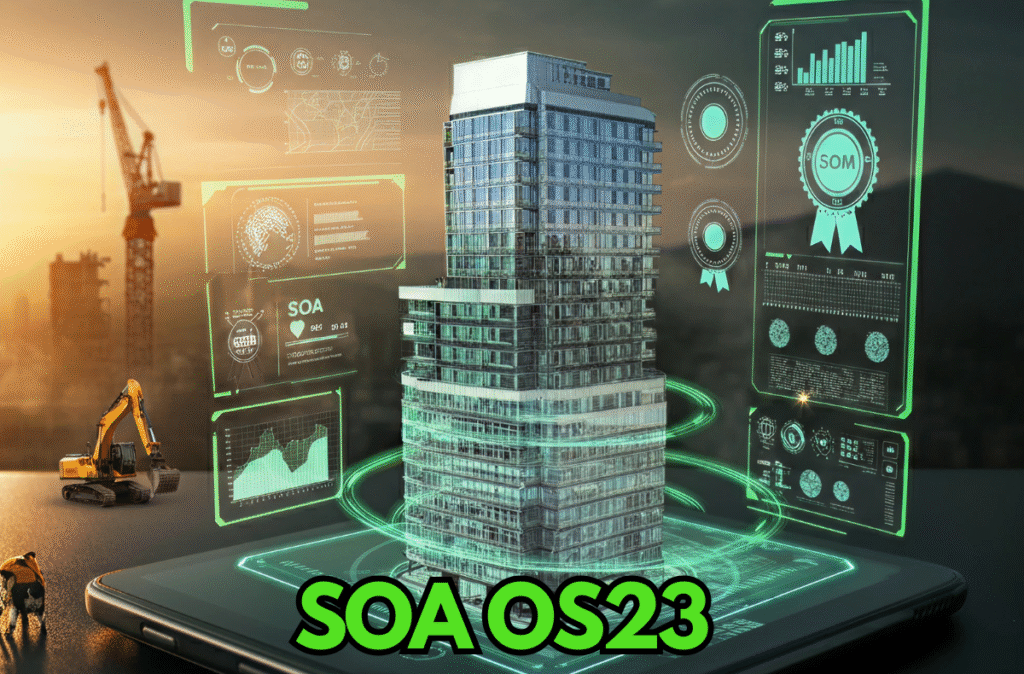Welcome to the intricate world of public tenders in Italy, where compliance and certification can make or break your construction project! If you’ve ever wondered how businesses secure that coveted edge in competitive bidding, look no further than SOA OS23—the essential certification for demolition work. In this blog post, we’ll unravel the mysteries behind this crucial accreditation, exploring its significance, requirements, and impact on your projects. Whether you’re a contractor aiming to enhance your credentials or a project manager seeking clarity on tender processes, understanding SOA OS23 is vital for navigating the dynamic landscape of public works in Italy. Join us as we dive into everything you need to know about mastering this key element of successful demolition work!
Introduction to SOA OS23 Certification
The world of public tenders can often feel like a labyrinth, especially when it comes to compliance and certifications. Among these essential credentials is the SOA OS23 certification—a crucial requirement for anyone looking to undertake demolition work in Italy. But what exactly does this certification entail? Why is it so important? Whether you’re a contractor aiming to expand your services or simply curious about the regulations that govern construction projects, understanding SOA OS23 opens up a new realm of opportunities and responsibilities. Let’s dive deeper into this vital certification and uncover what you need to know to navigate your way through public tender processes with confidence.
History and Purpose of the Certification
The SOA OS23 certification emerged in Italy to enhance the quality and safety of demolition work. It was created as part of a broader effort to regulate public tenders, ensuring that only qualified companies can undertake such critical tasks.
Historically, the need for this certification arose from increasing concerns over construction site accidents and improper waste management. As urban development accelerated, so did the risks associated with demolition activities.
The purpose of SOA OS23 is clear: to establish stringent criteria that contractors must meet. This ensures they possess not just technical skills but also adhere to environmental regulations and safety protocols.
By requiring compliance with these standards, the certification aims to protect both workers and communities, while promoting responsible practices within the industry.
Requirements for Obtaining the Certification
To obtain the SOA OS23 certification, companies must meet specific criteria. First, they need to demonstrate adequate technical capability in demolition work. This includes having qualified personnel and appropriate machinery.
Financial stability is another crucial requirement. Companies must show that they have sufficient capital to undertake projects of varying scales. It ensures that they can handle any unforeseen circumstances that may arise during a project.
Experience also plays a vital role. Applicants should provide evidence of prior successful demolition projects of a similar scope to those tendered for public contracts.
Documentation is essential too; firms must submit detailed records outlining their operational history and compliance with safety regulations. This transparency helps build trust with contracting authorities who will review the applications closely before granting certification.
Understanding the Demolition Work Covered in SOA OS23
SOA OS23 certification specifically focuses on demolition work within public tenders. This includes a wide range of activities aimed at safely dismantling structures while adhering to strict safety and environmental regulations.
Types of demolition covered can vary from small residential buildings to larger commercial structures. The process encompasses both total demolitions and partial deconstruction, allowing for the salvage of materials where possible.
Furthermore, SOA OS23 addresses not just traditional methods but also advanced techniques like controlled demolitions that minimize impact on surrounding areas.
The certification ensures that contractors possess the necessary expertise in handling hazardous materials, managing debris disposal, and employing innovative technologies during projects.
By meeting these standards, professionals demonstrate their commitment to quality and safety in demolition practices within the public sector.
You Might Also Like : SoSoActive
Benefits of Having an SOA OS23 Certification
Having an SOA OS23 certification opens doors to numerous opportunities in the construction industry. It acts as a testament to your expertise in managing demolition projects, making you stand out among competitors.
With this certification, companies can participate in public tenders that require specialized qualifications. This access can lead to more lucrative contracts and partnerships with government entities.
Clients also feel reassured when they see the SOA OS23 credential. It signifies adherence to high standards of safety and quality control, which is vital for demolition work.
Additionally, it enhances your credibility within the industry. Being certified gives clients confidence that you’re well-versed in regulations and best practices related to demolition projects.
Moreover, obtaining this certification often leads to better networking opportunities. Engaging with other certified professionals can foster valuable connections and collaborations for future projects.
How to Apply for and Renew the Certification
Applying for the SOA OS23 certification involves several steps. First, gather all necessary documentation that demonstrates your company’s qualifications and experience in demolition work. This includes financial statements, previous project records, and proof of technical capabilities.
Next, submit your application to an accredited SOA body. They will review your documents to ensure compliance with regulations and standards required for the certification.
Renewal is equally important. It typically occurs every five years but can vary depending on specific circumstances or changes in legislation. Be proactive about keeping track of renewal deadlines.
To renew, you may need to provide updated information regarding ongoing projects and any new certifications obtained since the last assessment. Regularly reviewing your company’s performance against SOA requirements helps ensure a smooth renewal process without unexpected hurdles down the line.
Common Misconceptions about SOA OS23
Many people believe that SOA OS23 is only relevant for large construction companies. In reality, small and medium-sized enterprises can also greatly benefit from this certification. It opens doors to public tenders that they might otherwise miss.
Another common misconception is that obtaining the certification is a quick process. While it requires thorough preparation and documentation, dedicated firms can navigate the process effectively with proper guidance.
Some also think SOA OS23 applies solely to demolition work. However, its scope encompasses various types of related activities, such as site clearance and waste management.
Lastly, many assume the certification guarantees automatic contract wins in public tenders. It’s essential to recognize that while it enhances credibility, successful bids still rely on competitive pricing and project quality.
The Future of SOA OS23 and Its Impact on Public Tenders
As the construction industry evolves, SOA OS23 certification is poised to play a critical role in shaping public tenders. With an increasing emphasis on safety and environmental standards, certified demolition contractors are likely to gain a competitive edge.
The future may see stricter regulations that prioritize certified firms for government projects. This could lead to higher-quality work and better compliance with legal requirements.
Technological advancements are also influencing the landscape. Innovative techniques for safer demolitions can enhance efficiency and reduce costs. Companies with SOA OS23 certification might be more adaptable to these changes.
Moreover, as awareness of sustainable practices grows, having this certification can position businesses as leaders in eco-friendly demolition methods. As clients become more discerning about their contractors’ qualifications, the demand for SOA OS23-certified professionals is expected to rise significantly.
Conclusion: Is an SOA OS23 Certification Worth Pursuing?
Determining whether an SOA OS23 certification is worth pursuing depends on various factors specific to your business and goals. For companies involved in demolition work, having this certification can be a significant advantage. It opens doors to public tenders, ensuring you are qualified for contracts that require specialized skills and expertise.
Investing time and resources in obtaining the SOA OS23 can pay off through increased credibility and trust among clients and stakeholders. With the right preparation, navigating the requirements becomes an achievable task.
Moreover, as regulations continue to evolve in construction sectors worldwide, holding certifications like SOA OS23 positions businesses favorably against competitors who lack such qualifications. The benefits extend beyond immediate contract opportunities; they build long-term relationships within the industry.
If you’re serious about entering or advancing in public tender markets for demolition projects, considering an SOA OS23 certification may very well be one of your best strategic moves.

